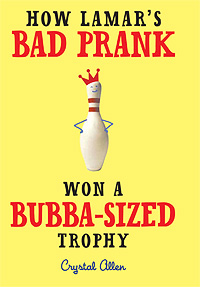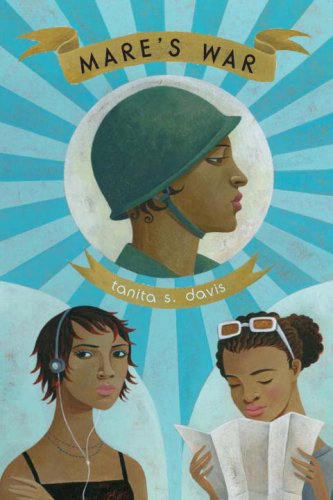Recently I stumbled across this article that spotlights the continued dearth of multicultural titles in the world of children's literature. As I said when I posted a link on Facebook, I wish this was a surprise to me, but it sadly is not. I'm sure that others who spend their time immersed in books for children probably aren't shocked either. Groups like the Cooperative Children's Book Center at UW-Madison, mentioned in the article, scour the record of titles published each year, tracking the number of books by and about people of color that are released. (If you want some fascinating reading, check out the CCBC's archives, where director KT Horning and her incredible staff post their yearly essays on the state of publishing.) What's really startling about the CCBC research is that the rate of kid's books by people of color published has never exceeded 5%.
Let that sink in a moment.
Of all the books published in any given year, 95% are by white authors.
True, there are books about multicultural characters being written by white authors - after all, I'm a white mama writing about race. But still, the rate of multicultural titles is very, very low. What's so sad about that is that it flies in the face of what's really happening in our country. Our society is becoming increasingly diverse; if you don't believe me on that fact, take a look at this detailed analysis of census data and the implications it carries for diversity in the population of US children. In researching a paper I wrote last fall on children's literature for multiracial families, I found multiple sources indicating that the lack of representation of their own reality can have a major impact on the identity formation of young children.
And really, is it any wonder? If you never saw yourself reflected in the world around you, wouldn't you grow to be a little self-doubting?
So if the world is becoming more diverse, then why aren't books reflecting that diversity? The short answer is white privilege; the long answer, as with so many things related to race, is more complicated. Publishers often argue that multicultural books don't sell. Booksellers and librarians may use the same argument. "We buy them and they don't circulate," as a school librarian in one of my classes put it. And in the days of ever-shrinking budgets, who can afford to buy what people don't want to read?
But if fewer titles are published, then fewer titles are reviewed by critics and even fewer are purchased by bookstores and libraries. The smaller the pool to draw from the more "other" these books seem. And in a world where everyone gravitates toward what they believe is HOT HOT HOT, quiet titles are going to be overlooked. I mean, I think The Hunger Games is just fantastically written, but is that really why everyone and their brother has read it? Or was it more about the drive to not be left out of the loop?
And then there's the fact that so many of the multicultural titles that make it into print are "issues" books. You know what I mean here, the ones that are about accepting others no matter how different, or are about standing up in the face of discrimination. Don't get me wrong, I think those titles are hugely important, and all our kids need to hear these messages, regardless of their skin tone. But honestly, kids get sick of being lectured to, and if they feel that a title is going to hit them over the head with a big ol' lesson, well, they're going to tune out. Trust me. What is immensely more effective are what I call "inclusion" titles, where the diversity of the characters is secondary to the plot or theme of the story. You know, the book that is such a great read that you're not constantly sidelined by the heavy-handed message the author is trying to get through.
So what's a parent or industry professional to do here? First off I think we all need to quit hiding behind excuses or being timid about this issue. Booksellers and librarians, take some time to examine your motives. I know we all think of ourselves as impartial, but the truth is we carry plenty of biases. Maybe you don't buy a certain author's new release because his/her older titles never circulated. Fair enough - but what's the buzz behind the new book? Check out the kidlitosphere, read some review journals, talk to other professionals. More importantly, read it yourself - and if you love it, sell the hell out of it. I'm just going to say it: multicultural books may require a bigger boost than other titles. I mean, you know the new Mo Willems is going to fly out the door, but something like Big Red Lollipop might require more of a boost from you. Integrate these titles into booktalks, feature them in displays, handsell them to customers or patrons, include them on booklists. The more you talk the more your message will get out there, and I promise you that the checkouts or purchases will follow. Make it your mission to get that title into the hands of a child who needs it, and don't give up!
Parents, if you feel as strongly as I do about having your kids represented in the literature they read, make your voice heard. You don't have to be obnoxious about it, but take some time to talk to your bookstore buyer or youth services librarian about what's on the shelves. Maybe they never realized that there are interested parties out there, and they'll make more of an effort to look for quality titles if they know you want them. If you are frequent library users like us, or are lucky enough to shop at an indie bookstore, I guarantee that your needs are hugely important to the powers that be. If you're buying at a chain, take some time to email their corporate office about your concerns. Above all, vote with your dollars and your checkouts. Libraries and bookstores are strapped for cash, and they can't stock books that don't show turnaround. It does very little good to entreat a store to stock more diverse selections if you're not going to follow through by buying them. So when you see more color popping up on the shelves, support the efforts of that store or library. Tell your friends, other parents, teachers or babysitters. And please try to track down the person who made that diversity possible, and thank them for their efforts. We all want to feel appreciated, and this will go a long, long way to continuing the process.
Look, this is something I'm passionate about because I feel we owe it to our children to give them books that are mirrors AND windows, that show them not only the reality they already know but one they may not otherwise see. In a world where image is everything, we really can make a difference in the lives of our young people. Start a movement that doesn't end until every child recognizes themselves in a book they read - can you imagine how different that might make our world??





No comments:
Post a Comment